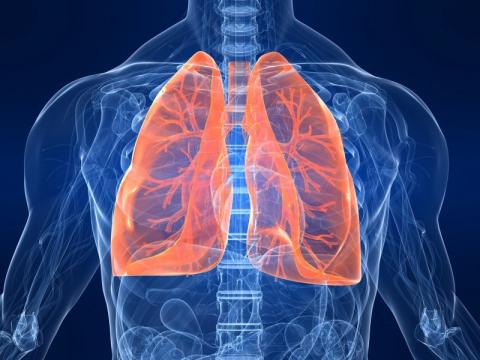World COPD Day – stop smoking now to cut the risk

In 2013, 34,522 people in Northern Ireland were registered as having the life-threatening lung disease Chronic Obstructive Pulmonary Disease (COPD), which is caused primarily by smoking.
COPD kills millions of people every year globally and the World Health Organization predicts that it will become the third leading cause of death worldwide by 2030, yet in most cases it is preventable, so the Public Health Agency (PHA) is using World COPD day [Wednesday 20 November] to urge smokers to make a decision to stop smoking today and reduce their risk of developing the disease.
Gerry Bleakney, Strategic Lead for Tobacco Control with the PHA, said: “Smoking is the biggest cause of COPD. It causes the lining of the airways to become damaged and narrower, making it more difficult to breathe. The risk of developing COPD increases the more you smoke and the longer you smoke.”
The most common symptoms of COPD are breathlessness, phlegm and a chronic cough often mistaken for a ‘smoker’s cough’. Symptoms can range from mild to severe, depending upon how advanced the disease is. In advanced cases people can even find it difficult to walk around the house and may have to use oxygen.
It is vital that anyone who thinks that they may have symptoms of COPD sees their GP, as early diagnosis and stopping smoking are crucial to avoid developing, or preventing the progression, of COPD, a long term illness which greatly affects quality of life and can lead to an earlier death.
Gerry continued: “There is no cure for COPD. Stopping smoking is the single most effective way to reduce your risk of developing the disease and avoid any further damage to the lungs.
“If you stop for 28 days or more, you are five time times more likely to stop for good. However, it is not easy and different approaches will work for different people. While some people might be able to do it with very little support, others find that planning ahead and making use of the Stop Smoking Support Services that are available can really help them make the decision permanent.
“If you quit and then relapse, accept it, work out why it happened, and focus on how you can avoid it in the future. It takes several efforts for many people to quit for good, but if you are determined, you will do it. Last year thousands of people decided to stop using the PHA’s Stop Smoking Services and many others did so, on their own. ‘Be prepared’ is the motto for success,” Gerry concluded.
For more information and useful tips to stop smoking, visit the PHA's Stop Smoking (stopsmokingni.info) website and order a ‘Quit Kit’ free of charge. Alternatively contact the Smokers’ Helpline on 0808 812 8008.
There are also over 600 free stop smoking specialist services across Northern Ireland in pharmacies, GP surgeries, hospitals, communities and workplaces that can help with your quit attempt.
